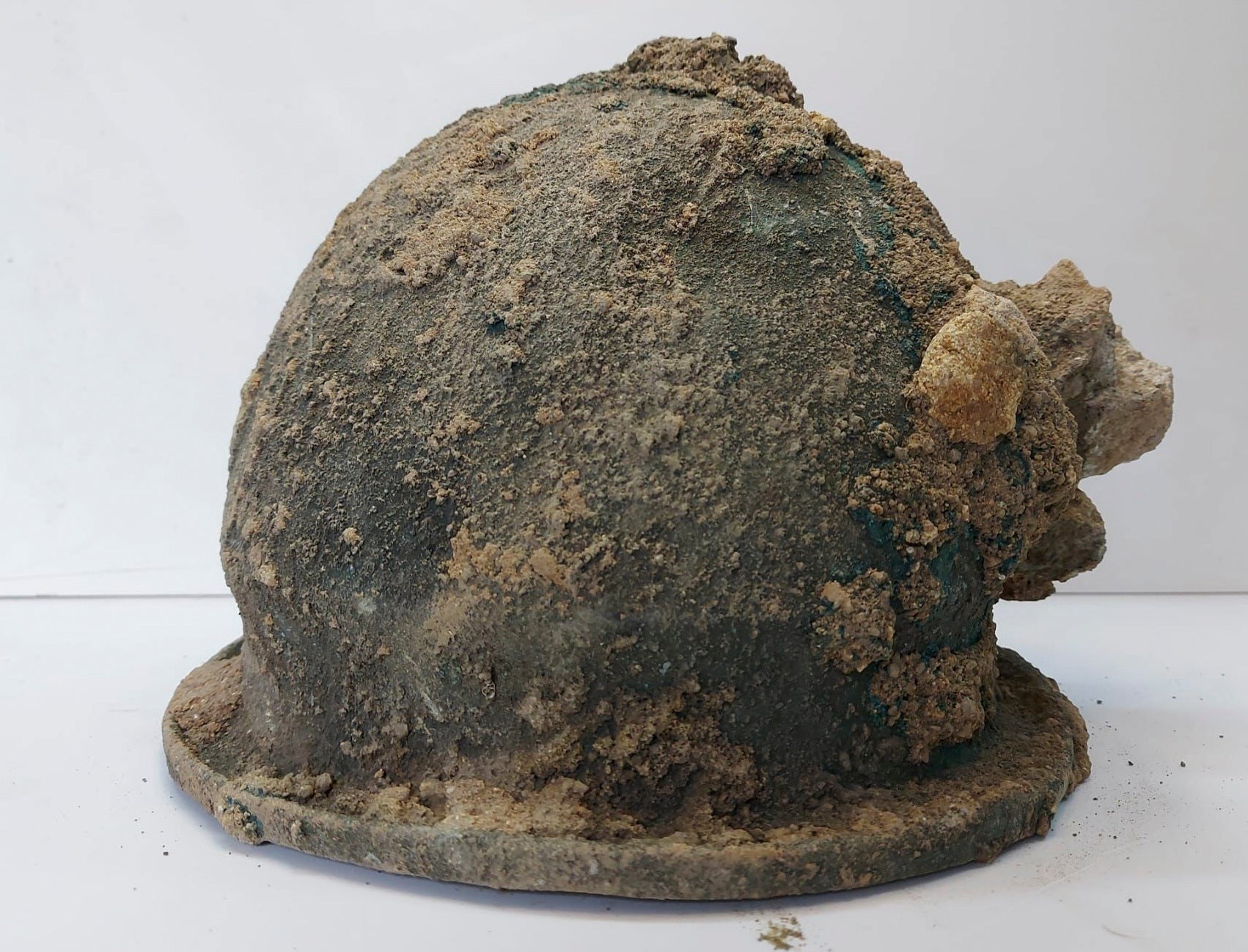Ancient helmets, temple ruins found at dig in southern Italy
Archaeologists in southern Italy say they have discovered the ruins of a painted brick wall and ancient warrior helmets at a site that might have been a forerunner of a temple dedicated to the goddess Athena

Your support helps us to tell the story
From reproductive rights to climate change to Big Tech, The Independent is on the ground when the story is developing. Whether it's investigating the financials of Elon Musk's pro-Trump PAC or producing our latest documentary, 'The A Word', which shines a light on the American women fighting for reproductive rights, we know how important it is to parse out the facts from the messaging.
At such a critical moment in US history, we need reporters on the ground. Your donation allows us to keep sending journalists to speak to both sides of the story.
The Independent is trusted by Americans across the entire political spectrum. And unlike many other quality news outlets, we choose not to lock Americans out of our reporting and analysis with paywalls. We believe quality journalism should be available to everyone, paid for by those who can afford it.
Your support makes all the difference.Archaeologists in southern Italy have discovered ancient warrior helmets and the ruins of a painted brick wall at a site that might have been a forerunner of a temple dedicated to the goddess Athena, officials said Tuesday.
Italian Culture Minister Dario Franceschini said the remains dug up at the popular tourist site of Velia were found on what had been an acropolis of one of Magna Graecia’s most important cities. Velia is 40 kilometers (25 miles) southeast of Paestum, a much-visited site of ancient Greek temples.
The recently completed excavation at Velia unearthed a pair of helmets in good condition, the remains of a building, vases with the Greek inscription for “sacred” and metal fragments of what possibly were weapons, the culture ministry said.
State Museums Director Massimo Osanna, who formerly had long directed excavations at Pompeii Italy's most celebrated excavated site, said the area explored at Velia probably contained relics of offerings made to Athena, the mythological Greek goddess of war and wisdom, after a key naval battle in the nearby Tyrrhenian Sea.
In the 6th-century B.C. battle of Alalia off the coast of Corsica, Greek forces were victorious over Etruscan forces and their Carthaginian allies.
Velia is famed for being the home of an ancient Greek school of philosophy, including philosophers Parmenides and Zeno. It was part of Magna Graecia, the area of southern Italy colonized by Greek city-states. The settlement at Velia occupied an upper part, or acropolis, of the area as well as hillsides, and was surrounded by a wall. The city's ancient name was Elea.
Velia's founding dates to about 540 B.C. by colonists from Asia Minor.
Franceschini said the discoveries yielded by the Velia excavation underscored the importance of investing in archaeological research to reveal “important pieces of the history of the Mediterranean ”